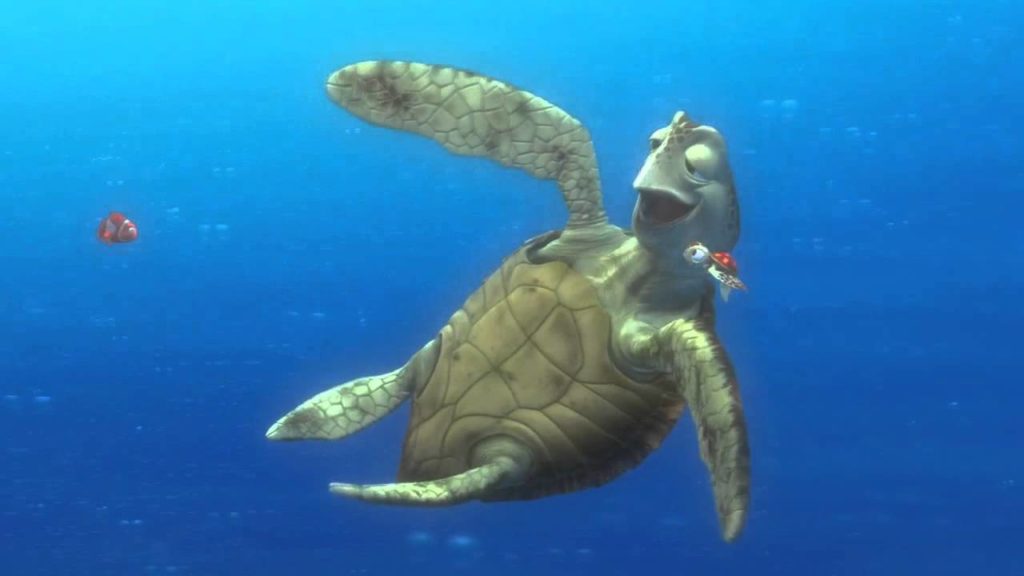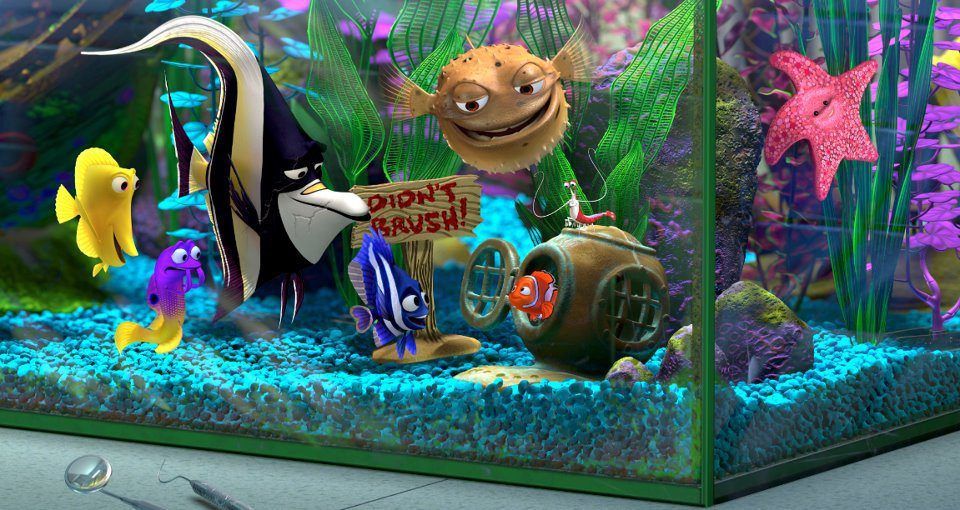 Usually, when it comes to a film’s protagonist, we consider the person who exhibits the most growth, or at least demonstrates the most action on behalf of the individual or others. Since 2003,?Finding Nemo?has been lauded for its artful tale of the titular little fish, netting box office splash, critical accolades, and the top spot in DVD sales … ever. But on further review, the film bears even deeper attention: this isn’t Nemo’s story at all, anymore than “The Parable of the Prodigal Son” is about the “lost” or younger son.
Usually, when it comes to a film’s protagonist, we consider the person who exhibits the most growth, or at least demonstrates the most action on behalf of the individual or others. Since 2003,?Finding Nemo?has been lauded for its artful tale of the titular little fish, netting box office splash, critical accolades, and the top spot in DVD sales … ever. But on further review, the film bears even deeper attention: this isn’t Nemo’s story at all, anymore than “The Parable of the Prodigal Son” is about the “lost” or younger son.
In?Finding Nemo, the young clown fish of the same name finds himself captured by human divers, against the wishes, urging, and commands of his father. In an act similar to the son who claims half of his father’s possessions in the story that Jesus tells in Luke 15:11-32, Nemo touches the hull of the ship and tells his father, quite clearly in fact, “I hate you.” Whisked away by the divers and sold to a dentist, Nemo at first fights the situation he finds himself in with a new group of aquarium fish, and finally, consigns himself to his fate.
 Meanwhile, Marlin takes his fatherly efforts up a notch or two. Putting his anxiety and fears about life off the reef aside, he departs his home to pursue his son. He first encounters a regal blue tang named Dory, and then an Australian shark named Bruce, a sea turtle named Crush, and the pelican named Nigel. He dodges an Anglerfish, escapes a blue whale, and finally arrives in Sydney, Australia, to collect his son. Through a series of strange and fantastic events, they are reunited. Happy ever after…
Meanwhile, Marlin takes his fatherly efforts up a notch or two. Putting his anxiety and fears about life off the reef aside, he departs his home to pursue his son. He first encounters a regal blue tang named Dory, and then an Australian shark named Bruce, a sea turtle named Crush, and the pelican named Nigel. He dodges an Anglerfish, escapes a blue whale, and finally arrives in Sydney, Australia, to collect his son. Through a series of strange and fantastic events, they are reunited. Happy ever after…
But the truth of the story is that it all swings on a moment when Nemo hears – by way of Nigel, by way of seagulls, by way of swordfish, by way of turtles, etc. – that his father is coming to get him. It’s not until he hears the empowering good news, the truth of his father’s love, that he summons the courage (and a few others are inspired) for him to break out. [Sidebar: What can we learn about the power of the gospel? The fact that people?need?to hear that they’re loved, that God loves them? Sometimes, our lives feel like they’re in glass houses… or aquariums… with no way out.]
 Back in the words of Jesus’ story of the son, we can see that while we have contextualized “prodigal” to refer to a son who squanders his father’s wealth – or any black sheep of the family who has wandered off (and may or may not return) – the truly scandalous, powerful, unending, undeserved, uncontainable love of the father is what is truly “prodigal.” In fact, Jesus’ parable is not that of the “lost” or “prodigal” son, but that of the seeking father.
Back in the words of Jesus’ story of the son, we can see that while we have contextualized “prodigal” to refer to a son who squanders his father’s wealth – or any black sheep of the family who has wandered off (and may or may not return) – the truly scandalous, powerful, unending, undeserved, uncontainable love of the father is what is truly “prodigal.” In fact, Jesus’ parable is not that of the “lost” or “prodigal” son, but that of the seeking father.
For a moment, consider what the father must have been doing in Jesus’ story to see the son “while he was a long way off.” Of course, he had to have been actively looking or seeking for him, but what if the father was in fact?always aware?of where his cutthroat, out-of-bounds boy had gone? What if the father had allowed – like most parents have at some point – for his child to experience failure, to suffer, to misstep so that he could learn who he was? In the process, the father teaches the son grace.
And in the end, the fathers are the heroes of these stories.
Ultimately, it is about the grace to forgive (and maybe to forget, right Dory?) that allows both fathers to love extravagantly. With apologies to Marvin Gaye, there ain’t no ocean wide enough, no disobedience or shame deep enough, to keep either of these fathers from getting to their sons.?This?is the testimony of the story – the heart of the gospel – that nothing we do can separate us from the love of the Father, that God’s love is immeasurably deep and wide.





